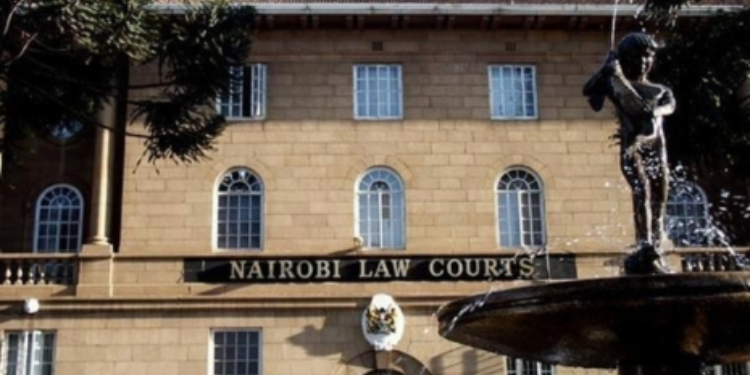The High Court of Kenya has ruled on sharing sexual content, awarding Ksh 4.8 million to filmmakers unlawfully arrested by police officers. According to the ruling, filmmaker Dick Ouko and six others were unlawfully arrested, detained, and harassed by police officers.
The judgment, delivered on 10th September 2025 by Justice Florence Muchemi, declared that the arrests were unconstitutional and lacked any legal foundation.
Court Says Arrests Based on a Non-Existent Offence
Notably, the case stemmed from a series of illegal raids conducted at Ouko’s residence and animation studio in Juja between 2022 and 2023.
Police officers accused the group of “sharing pornographic content” and repeatedly detained them without warrants or formal charges.
“The alleged offence of sharing pornographic content is not recognised in any Kenyan statute, including the Penal Code and the Computer Misuse and Cybercrimes Act,” the court stated.
The judge added that the officers failed to produce a search warrant, a formal complaint, or any evidence justifying their actions.
“There was no valid complaint lodged with the police, and no lawful authority was cited to justify the arrests and detentions,” ruled Justice Muchemi, claiming that the supposed offence had no basis in law.
Violation of Constitutional Rights
The court held that the officers had violated multiple constitutional provisions, including Articles 25, 28, 29, 31, 40, 49, and 50 of the Constitution of Kenya (2010), articles that protect the rights to dignity, liberty, privacy, property, and fair trial.
Also Read: Court Upholds Augustine Mwendwa’s Life Sentence for Defiling Eight-Year-Old Girl
Justice Muchemi emphasised that the actions of the police were arbitrary and abusive.
“The respondents acted in total disregard of the petitioners’ rights to privacy, property, and due process. Their conduct amounted to harassment and intimidation,” she stated.
Evidence presented before the court included photographs of damaged studio equipment, medical reports showing injuries, and bank statements indicating attempted extortion.
The petitioners testified that they were producing an animation project for a government tender when the harassment occurred.
The court observed that the raids and detentions disrupted the filmmakers’ business operations and inflicted emotional and financial harm.
“The unlawful detention and destruction of property were a gross violation of the petitioners’ constitutional protections,” the judgment read.
Court Orders and Compensation
In delivering the final orders, the court declared the arrests, detentions, and property seizures unlawful and unconstitutional.
Also Read: Court Rules on MP Oreros Driver After Being Unmasked by Larry Madowo
It awarded KSh 500,000 to each of the seven petitioners for breach of fundamental rights, KSh 1 million to Ouko for business loss, and KSh 300,000 for pain and suffering totaling Ksh 4.8 million.
“The petitioners are entitled to compensation for the unlawful actions of the police, which caused both economic and emotional injury,” Justice Muchemi ruled.
The court also directed the Inspector General of Police, Douglas Kanja, and other respondents to pay the costs of the petition.
In conclusion, Justice Muchemi reiterated that sharing sexual content among consenting adults does not constitute a criminal offense under Kenyan law unless it involves minors or contravenes public decency statutes.
“The arrest and detention were unconstitutional and an abuse of police powers,” she said.
Follow our WhatsApp Channel and X Account for real-time news updates.














































































